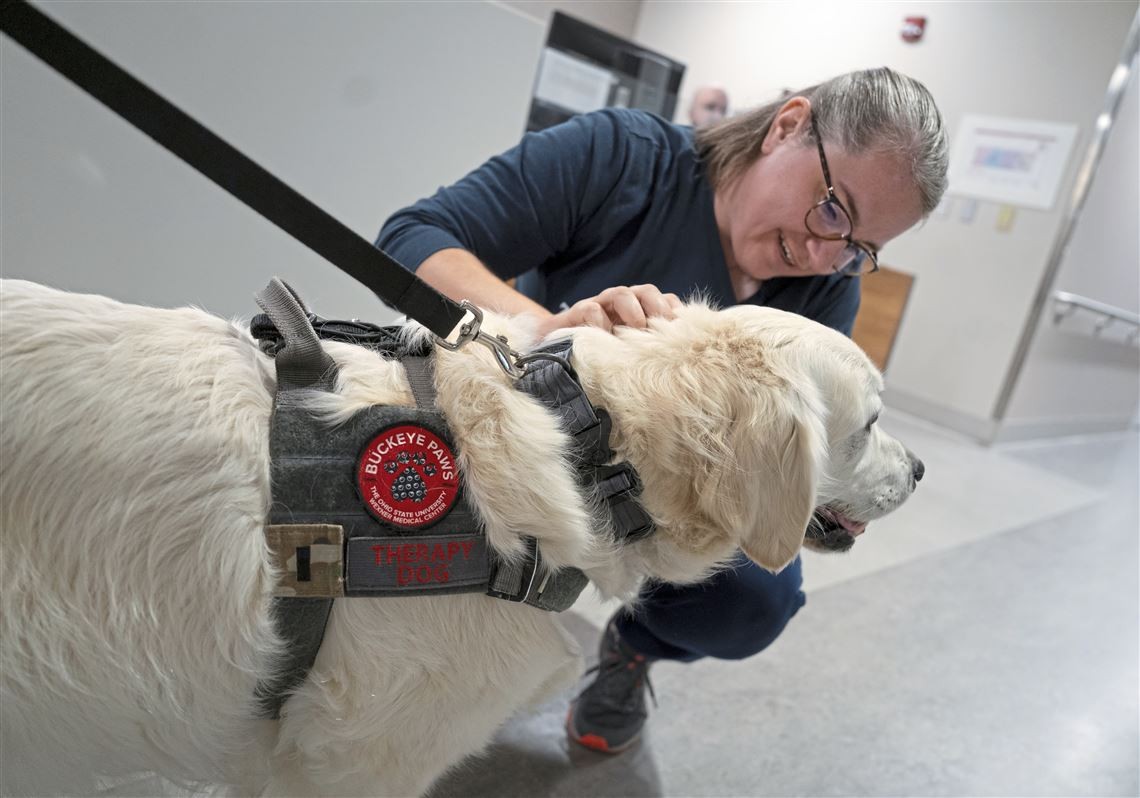
In an innovative approach to combat healthcare worker burnout, Denver's Rose Medical Center has introduced a unique solution - therapy dogs working full shifts alongside medical staff. These specially trained Labrador retrievers are making a remarkable difference in reducing stress levels among doctors, nurses, and other healthcare professionals.
Dr. Susan Ryan, an emergency physician at Rose Medical Center who developed PTSD from her years of service, pioneered this initiative. The program pairs trained dogs with staff members throughout their shifts, providing continuous emotional support during challenging workdays.
"The dog just walks on, and everybody takes a big deep breath and gets down on the ground for a few moments of decompressing," says Dr. Kristina Fraser, an OB-GYN at the hospital. The impact is immediate and visible, as medical professionals take brief breaks from their intense schedules to interact with their four-legged colleagues.
The program has been particularly valuable during high-stress periods, including the COVID-19 pandemic. New nurses facing death for the first time found comfort in the presence of these therapy dogs. EMT Jasmine Richardson notes, "When I have a bad day at work and Peppi's here, my day's going to be made better."
Safety measures are strictly enforced - the carefully selected Labradors undergo extensive training to minimize bite risks, receive regular baths, and staff must practice hand hygiene before and after interactions. The dogs are kept away from allergic patients to prevent adverse reactions.
The initiative addresses a growing mental health crisis among healthcare workers, with some hospitals losing physicians to suicide. Dr. Ryan emphasizes that even brief interactions with the dogs can help ground medical professionals, providing much-needed emotional relief during demanding shifts.
As healthcare workers continue to face high levels of stress and burnout, this innovative program demonstrates how animal-assisted therapy can create moments of calm in an otherwise intense hospital environment. The success at Rose Medical Center could serve as a model for other healthcare facilities seeking new ways to support their staff's mental well-being.